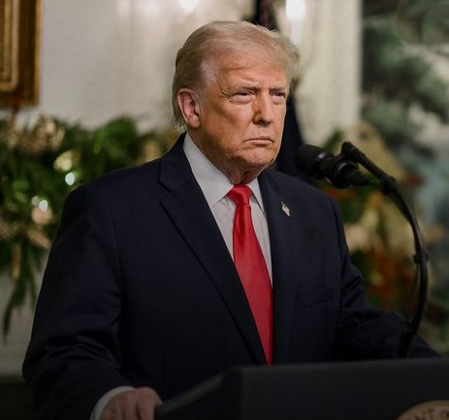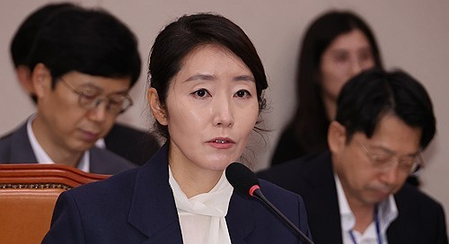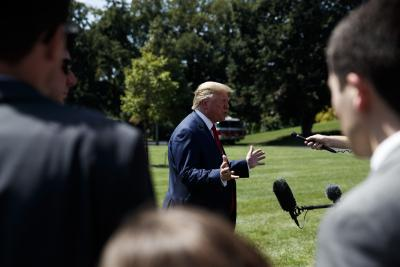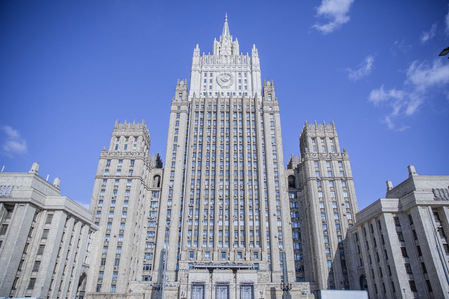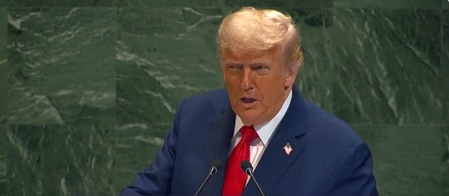
New Delhi, Sep 23 (IANS) US President Donald Trump took on almost every country in the world making the headlines in current times, but it was the United Nations, which bore the brunt of his ire as he took the podium at the UN General Assembly debate in New York on Tuesday.
“In just under seven months, I’ve ended seven ‘unendable’ wars,” he said, adding, “It’s bad that I’d to do these things instead of the United Nations doing them.”
And, to make matters worse, the teleprompter did not work for the first few minutes of his more than one-hour speech, and the elevator he took to reach the hall stopped midway.
It was their fitness that the US President and the First Lady Melania Trump did not fall, Trump shared more as a complaint than humour.
The world body bore the brunt of Trump’s attack for issues ranging from war to mass immigration and climate change.
Trump has been critical of the United Nations and organisations under its umbrella over several issues and has withdrawn his country from some, holding back their fundings, in both his terms as the US President.
According to the UN, the US owes it nearly $3 billion.
A news report estimated that Washington was expected to contribute 22 per cent of that budget for 2025.
Earlier this year, the US decided to reaffirm its decision (taken in 2018) to withdraw from the UN Human Rights Council (UNHRC), and UN Relief and Works Agency for Palestine Refugees (UNRWA), resulting in an estimated funding cut of $20 million and $364 million annually, respectively.
The Presidential order, signed by Trump on February 4 in his second term, criticised the UN bodies to have drifted from its mission and “instead act contrary to the interests of the US while attacking our allies and propagating anti-Semitism”.
It added, “Three UN organisations that deserve renewed scrutiny are the UNHRC; the UN Educational, Scientific, and Cultural Organisation (UNESCO); and the UN Relief and Works Agency for Palestine Refugees in the Near East (UNRWA).”
In July, the US announced that it will leave the UNESCO, which will take effect at the end of December 2026.
The world body was accused of anti-Israel bias and failure to reform. That meant cutting an annual budget of about $80 million annually.
Earlier, citing its withdrawal from the World Health Organisation (WHO) in 2020 “due to the organisation’s mishandling of the Covid-19 pandemic”, a Presidential order, signed on January 20 this year said, “the WHO continues to demand unfairly onerous payments from the United States, far out of proportion with other countries’ assessed payments. China, with a population of 1.4 billion, has 300 per cent of the population of the United States, yet contributes nearly 90 per cent less to the WHO.”
That led to another annual funding cut of nearly $130 million.
In 2023, the US contributed $13 billion to the UN system, with three-quarters being voluntary contributions, according to reports.
Two years later, it ceased all payments to the international organisation, starting January, resulting in an estimated $3 billion in unpaid dues.
The UN, says a forecast, faces a $500 million shortfall in 2026, with 20 per cent job cuts across peacekeeping, humanitarian, and health agencies.
However, it needs mention that such decisions were taken not only during the two terms under the current President.
The US has a history of withdrawing from and rejoining various UN bodies, often based on shifts in foreign policy and domestic priorities.
The reasons for these withdrawals typically centre on accusations of political bias, a perception that the organisations are not aligned with US national interests, or a belief that other countries are not contributing their fair share.
— IANS
jb/khz

